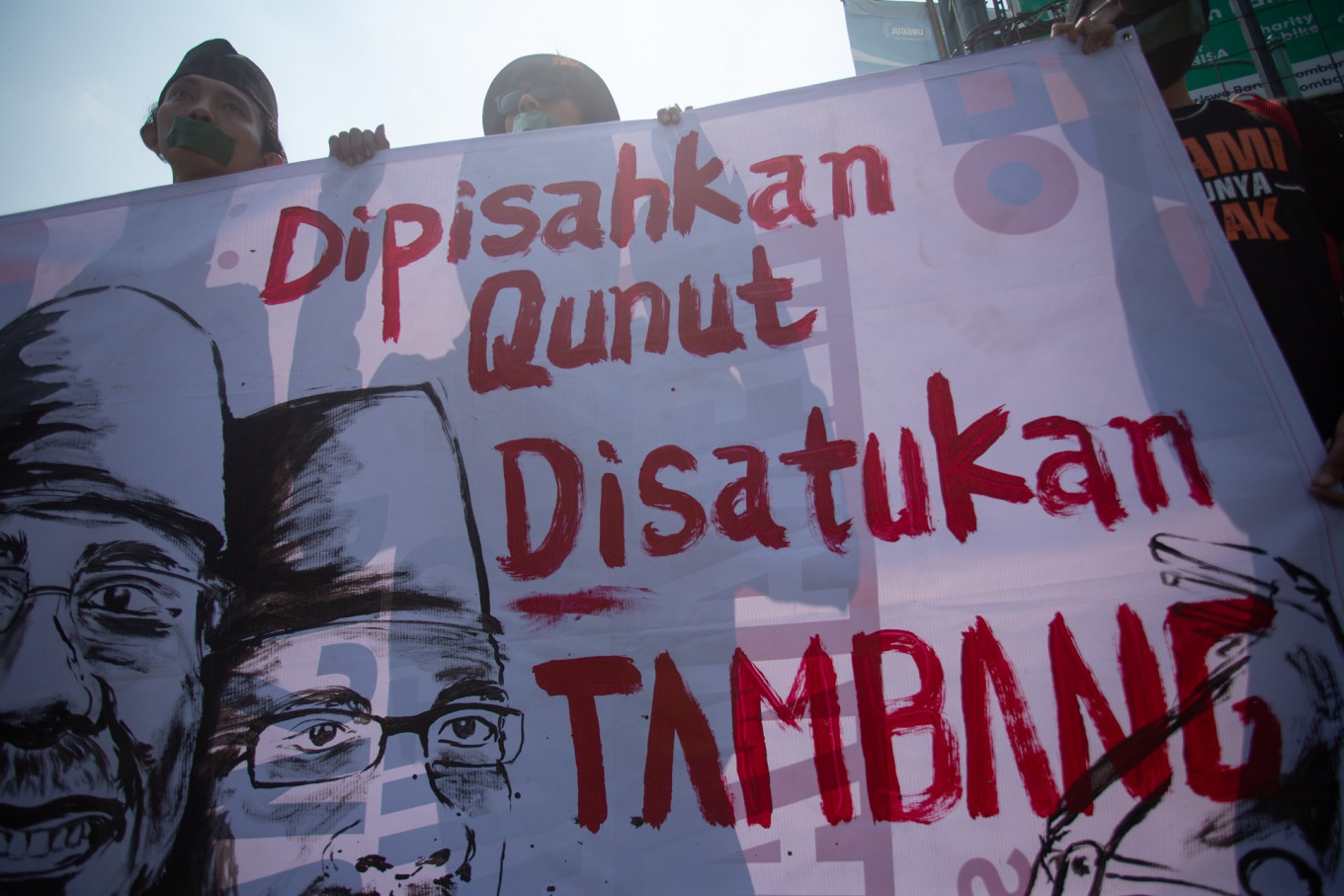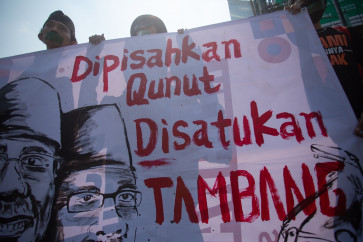Popular Reads
Top Results
Can't find what you're looking for?
View all search resultsPopular Reads
Top Results
Can't find what you're looking for?
View all search resultsWhat’s driving Indonesia's mining law revision?
By leveraging coal wealth, the government seeks to secure strategic support from influential groups.
Change text size
Gift Premium Articles
to Anyone
 Protesters hold posters that read “Dipisahkan Qunut, Disatukan Tambang“ (Separated by Qunut, United by Mining) on July 27, 2024, during a protest against Islamic group Muhammadiyah's decision to accept the government's offer on coal mining concessions in Sleman, Yogyakarta. (Antara/Hendra Nurdiyansyah)
Protesters hold posters that read “Dipisahkan Qunut, Disatukan Tambang“ (Separated by Qunut, United by Mining) on July 27, 2024, during a protest against Islamic group Muhammadiyah's decision to accept the government's offer on coal mining concessions in Sleman, Yogyakarta. (Antara/Hendra Nurdiyansyah)
A
recent The Jakarta Post editorial expressed concern over the revision of the Mineral and Coal Law, which grants mining permits to universities and religious organizations. The editorial emphasized three critical issues: a lack of public consultation, significant environmental risks and an inconsistency with Indonesia’s international climate commitments.
These concerns are valid, but a fundamental question remains unanswered: Why did the government grant mining concessions to these entities? This decision provides privileges that warrant further scrutiny.
Rather than being driven purely by economic factors, the policy appears to be a political strategy aimed at strengthening the government’s influence over key social institutions. By leveraging coal wealth, the government seeks to secure strategic support from influential groups.
However, this strategy risks undermining Indonesia’s environmental sustainability commitments. To fully understand the motivations behind this revision, we must untangle the connections between resource management, political patronage and power dynamics in Indonesia.
Exploring this question brings us to the country’s structural dependence on coal. Is the decision based solely on financial needs, or does it reflect a recurring pattern in which coal remains a pillar of the economy, even as global markets shift toward renewable energy? Despite growing concerns about climate change, coal is still perceived as crucial to Indonesia’s economic stability.
Indonesia, one of the world’s largest coal exporters, has vast reserves that have long underpinned its national economy. Proponents of the revised law argue that granting mining rights to universities and religious organizations will provide them with financial independence. Coal remains a lucrative revenue source, even as the global energy landscape evolves.
However, this reliance on the extractive industry is increasingly out of step with global trends. Countries worldwide are phasing out coal because of its role in climate change. The rapid growth of renewable energy is making coal an obsolete asset. This raises a crucial question: Why tie the financial future of universities and religious organizations to a declining industry?


















